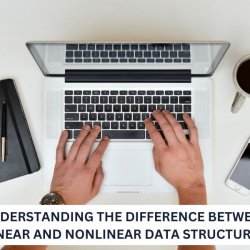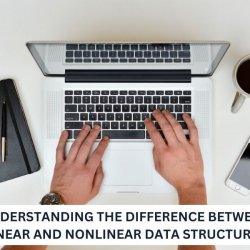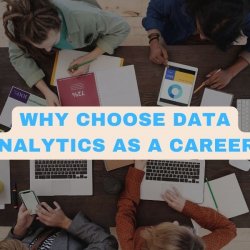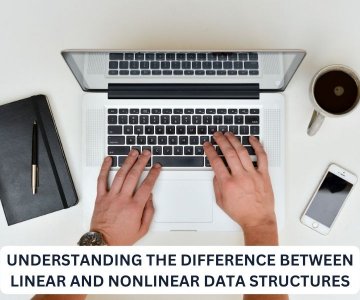How to Use Books to Learn the Basics of Data Science


Data Science is a rapidly growing field involving the scientific extraction, analysis, and interpretation of data. It requires analytical thinking, problem solving, quantitative skills, mathematics, and statistics, as well as data analysis and visualization to gain insights that can drive decision-making in an organization.
Today, more and more people are interested in learning the basics of data science. This article aims to provide some insight into how to use books to learn the fundamentals of data science.
Books to Learn
There are many great resources out there for those looking to learn data science and its related techniques such as machine learning, predictive analytics, and artificial intelligence. Some books that are being recommended include “Data Science: An Introduction” by Agus Kurniawan which covers basic concepts such as data modeling and analysis; “Practical Machine Learning” by Peter Harrington which focuses on machine learning techniques; “Data Analytics Using Python” by Charles Severance provides an introduction to Python programming; and “Intro To Probability & Statistics” by William P. Fisher which dives into probability theory and statistical methods with examples from real-world applications.
Basics of Data Science
When it comes to mastering the fundamentals of data science, understanding key concepts is essential. From building models using analytical techniques such as linear regression and logistic regression to exploring different types of visualizations like histograms or scatter plots—these concepts will help form a base for further exploration in the field. Additionally, it is important to be able to understand how different types of datasets are organized to know what approaches may be most effective when dealing with them. Check Out: Online Classes
Types of Data Science Books
Data science is becoming increasingly popular in the world of technology. It involves collecting, organizing, and analyzing large amounts of data to gain valuable insights into a business’s operations and uncover patterns in the data. To be successful, you must have a strong understanding of data science fundamentals. But with so much information out there, how do you start your journey into learning data science? Books can be an excellent way to get started! Here are some of the types of books that can help you gain a fundamental understanding of data science:
- Machine Learning – For those interested in machine learning (ML), books such as “Handson Machine Learning with ScikitLearn and TensorFlow” or “Machine Learning for Beginners” can be fantastic resources. These books walk readers through ML models and algorithms as well as explain the different types of supervised and unsupervised learning techniques.
- Statistical Data Analysis – This type of book focuses on teaching readers how to interpret, analyze, and make predictions based on collected datasets. A great example would be “An Introduction to Statistical Learning with Applications in R” or “Data Analysis Using Regression and Multilevel/Hierarchical Models” which provide instructional guidance on performing statistical analyses using software such as R or Python.
- Database Management & Querying – Adding on from topics like SQL, database management & querying books are ideal for anyone wanting to learn about accessing information from databases using Structured Query Language (SQL). Check Out: Professional Courses
Identifying a Suitable Book
Are you looking to start learning the basics of data science? If so, a great way to do this is by reading books. To identify the right book for your needs, there are several steps you should consider.
First, identify your level. Are you a complete beginner or an experienced learner? This will help narrow down the kinds of books you should look into.
Research different authors and look at reviews. Who are the top authors in the field and what type of reviews have they received? Good authors typically have good reviews on Amazon or other websites.
Evaluate reviews and browse various topics. Check out both positive and negative reviews to get a balanced opinion, and browse through several topics until you find one that interests you.
Check out additional details such as page count and language before making your decision. If the book is longwinded or written in a difficult language, it may not be suitable for your needs.
Compare different sources to make sure that your source is reliable and up to date with current trends in data science. Read through the introduction chapters to get an overview of what’s inside the book before buying it.
Choose relevant topics according to your needs; some books may focus on only one concept while others could cover multiple aspects of data science like algorithms and analytics tools. Consider how much detail each topic goes into before making your final decision.
Understanding the Content
Do you want to learn the basics of data science? Books can be one of the most helpful resources for gaining knowledge and understanding in this field. Whether you are just beginning your journey into the world of data science or already have a good base of understanding, there is something to learn from reading books on the subject.
When it comes to learning the basic concepts of data science, books can provide an invaluable source of reference material. By reading and studying these books, you can gain a better understanding of this complex discipline, which is essential for successful data analysis. Reading books also gives you access to expert advice from knowledgeable professionals in the field who have firsthand experience with specific topics. This additional level of insight can help refine your approach to data science and help build your skillset.
In addition to providing valuable reference materials, reading books on data science can be a great way to cultivate a love for learning. Whether you’re a beginner or an experienced practitioner, there are always new things that you can discover when it comes to data science. By making time for regular reading sessions and immersing yourself in topics related to data science, you can continue strengthening your knowledge and stay ahead of the curve in this ever-evolving field.
With so much information out there about data science, books offer an excellent way for readers to gain clear insight into the topic with easily accessible material right at their fingertips. If you’re looking to get a better understanding of data science basics, then using books is one of the best ways forward. So if you’re ready to take your first steps into this exciting field, then start looking up some great books on data science today! Check Out: Online Learning
Working Through Exercises
Learning about data science can be daunting—not only does it involve a large amount of technical knowledge, but you also need to understand the tools and techniques associated with data science. Fortunately, there are several books available that can help you gain a better understanding of the fundamentals of data science. Here’s how to use books to learn the basics of data science:
Utilize Books:
Books are an excellent resource for learning about data science—these resources provide readers with detailed explanations and examples that can be used to understand even the most complex concepts. Additionally, many books offer practical exercises for readers to work through, which is especially beneficial for those who are new to the field.
Data Science Fundamentals:
When choosing a book on data science, make sure that it covers all of the fundamentals—this includes concepts such as machine learning algorithms, SQL databases, big data handling methods, and more. Additionally, some advanced topics may not be covered in all books; however, these specific topics can always be explored further online or in other sources.
Advantages of Books:
There are several advantages to using books when learning data science. First, they provide more depth than other sources such as online tutorials or articles—because they have entire chapters dedicated to each topic rather than just a few paragraphs. Additionally, by working through the exercises found in most books (or reading through relevant chapters), readers can gain invaluable hands-on experience that isn’t typically possible through other sources.
Supplementing with Online Resources
Supplementing with online resources can be a great way to learn the basics of data science. Even if you don’t have access to in-person classes or instructors, you can still take the initiative and teach yourself this valuable skill. One of the best ways to do this is by using books as your primary source of instruction.
When it comes to choosing a book to guide your learning, it’s important that you select one that meets your particular needs. Whether you’re looking for more detailed technical information or just a step-by-step guide for beginners, there are a variety of books on the market that can help you get started.
Once you’ve chosen a book to use as your primary source of instruction, there are several approaches you can take when going through the material. Take time to research and investigate topics thoroughly so that you fully understand their implications before moving on to something else. When appropriate, practice and apply what you’ve learned in small projects so that it will stay fresh in your memory and be easily accessible for future reference.
Using books as an online resource for data science is a valuable source of information and can even provide insight into advanced concepts like machine learning and artificial intelligence. No matter what level of understanding or expertise you have, using books as part of your data science education will offer both structure and guidance throughout your journey.
Joining Community Discussions and Support Groups
Learning the basics of data science can be a daunting yet rewarding endeavor. Fortunately, there are a number of different resources available to help individuals gain the knowledge and skills they need. One such resource is books, which provide a great foundation for learning the basics of data science.
Books are a great way to get started in your journey as you can quickly build up your knowledge base and learn the fundamentals of data science. Additionally, many books have additional resources listed at the end, such as websites and datasets that can be used to further bolster your understanding of data science principles.
Once you’ve got to grips with some of the foundational concepts – such as databases, machine learning, and programming – joining community discussions and support groups is an excellent way to continue honing your skills. By interacting with experts who have experience in various areas of data science, you can draw on their expertise to help you grow in the right direction. Such interaction allows you to ask questions or collaborate with others who may be stuck on a particular problem – thereby freeing up more time for yourself to practice and hone your own skillset further.
Support groups also provide access to timely advice that may help jumpstart your project including effective methods for wrangling datasets or introducing new technologies into your workflow. Making connections with like-minded people within these groups is also hugely beneficial for staying informed about upcoming trends in the field, as well as advancing your own career and opening up more opportunities. Check Out: DataTrained
A Step-By-Step Guide to Using Books for Learning Data Science
Books are a great way to learn data science if you know how to use them properly. If you’re unfamiliar with the subject, this step-by-step guide will help you get started.
The first step in learning data science by book is to identify relevant books. Not all books will be a good fit for your goals and skill level, so it’s important to research and look for books that will be beneficial. You can use online sources such as reviews, blog posts, or forums to help narrow down your search.
Once you have identified the right book for you, it’s important to set expectations. Depending on your literary abilities and goals, decide how much of the book you think is reasonable to read in a certain amount of time. You don’t want to rush and miss out on valuable information from the book you chose.
Another crucial step in learning data science by book is looking for learning objectives within each chapter or section. Not all chapters may contain applicable information for what you are trying to achieve with the subject matter at hand so make sure that you focus primarily on those sections which have actionable items instead of general overviews. This will ensure that your time is spent only on useful information related to the topic at hand. Check Out: Online Education
Take notes while reading so that you can quickly recall anything when needed later on in your studies or projects. Writing down key points and concepts such as definitions, processes, techniques, etc., will help solidify your understanding of data science concepts while also providing material to refer back to when necessary.






Ingen kommentarer endnu